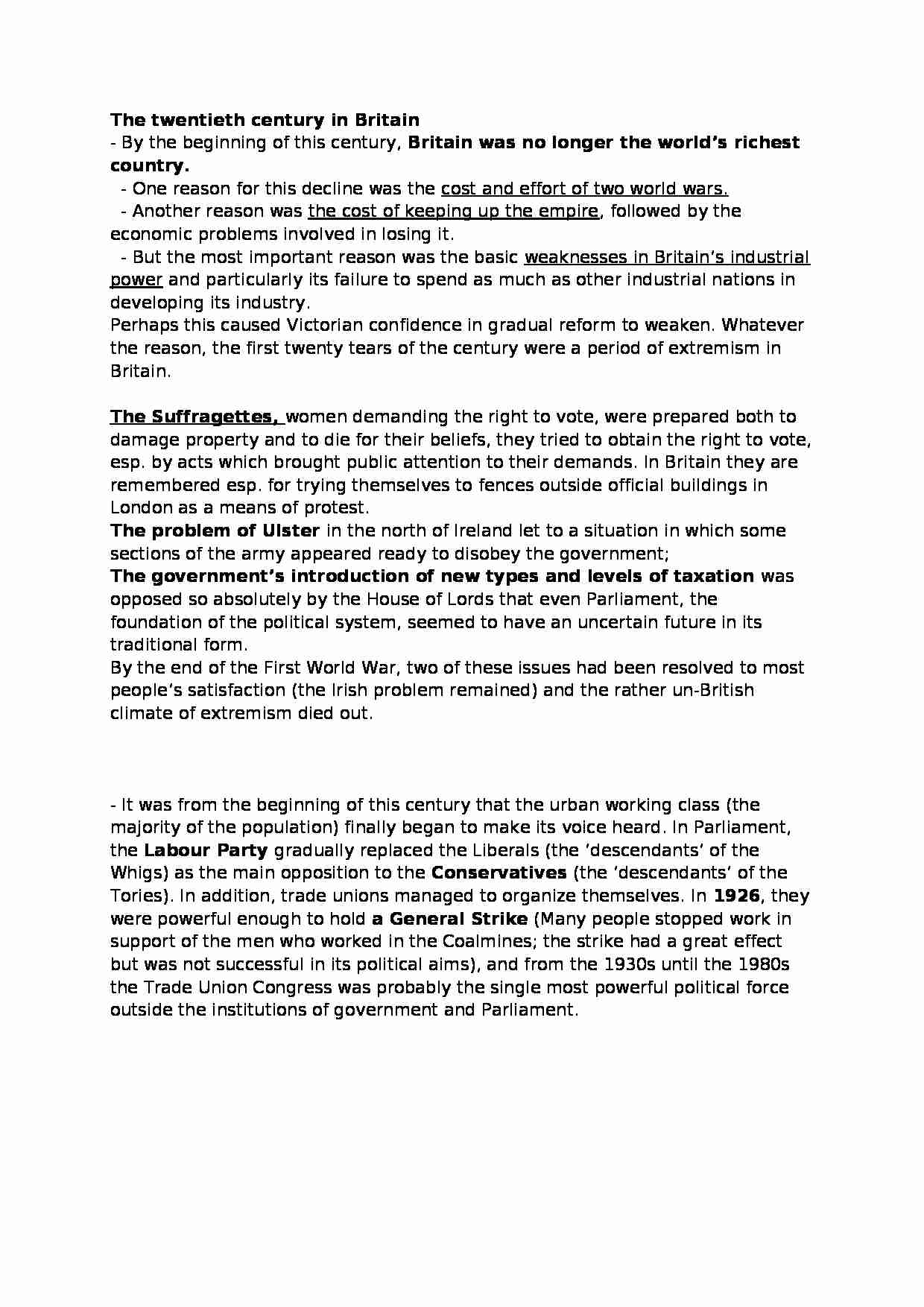
The twentieth century in Britain - By the beginning of this century, Britain was no longer the world's richest country. - One reason for this decline was the cost and effort of two world wars. - Another reason was the cost of keeping up the empire, followed by the economic problems involved in losing it. - But the most important reason was the basic weaknesses in Britain's industrial power and particularly its failure to spend as much as other industrial nations in developing its industry. Perhaps this caused Victorian confidence in gradual reform to weaken. Whatever the reason, the first twenty tears of the century were a period of extremism in Britain. The Suffragettes, women demanding the right to vote, were prepared both to damage property and to die for their beliefs, they tried to obtain the right to vote, esp. by acts which brought public attention to their demands. In Britain they are remembered esp. for trying themselves to fences outside official buildings in London as a means of protest. The problem of Ulster in the north of Ireland let to a situation in which some sections of the army appeared ready to disobey the government; The government's introduction of new types and levels of taxation was opposed so absolutely by the House of Lords that even Parliament, the foundation of the political system, seemed to have an uncertain future in its traditional form. By the end of the First World War, two of these issues had been resolved to most people's satisfaction (the Irish problem remained) and the rather un-British climate of extremism died out. - It was from the beginning of this century that the urban working class (the majority of the population) finally began to make its voice heard. In Parliament, the Labour Party gradually replaced the Liberals (the `descendants' of the Whigs) as the main opposition to the Conservatives (the `descendants' of the Tories). In addition, trade unions managed to organize themselves. In 1926, they were powerful enough to hold a General Strike (Many people stopped work in support of the men who worked in the Coalmines; the strike had a great effect but was not successful in its political aims), and from the 1930s until the 1980s the Trade Union Congress was probably the single most powerful political force outside the institutions of government and Parliament.
... zobacz całą notatkę



Komentarze użytkowników (0)